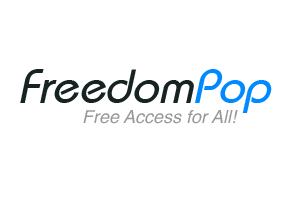Can FreedomPop disrupt the carriers?
Ajit Deshpande - August 13, 2013 - 0 Comments
 Last week, Los Angeles based startup FreedomPop announced that it now has more than 100,000 users, and that it will now be using Sprint’s LTE network as its infrastructure backbone (in addition to its ongoing use of Clearwire’s WiMax infrastructure). The two-year old startup is a wireless internet provider delivering free 4G mobile broadband internet access using a freemium business model. Users get 500MB of free monthly data usage (using a FreedomPop provided LTE hotspot) and pay for data overages at ~$10 per GB. Users can gain additional free data capacity by recruiting others to sign up or by responding to surveys / sharing information with advertisers.
Last week, Los Angeles based startup FreedomPop announced that it now has more than 100,000 users, and that it will now be using Sprint’s LTE network as its infrastructure backbone (in addition to its ongoing use of Clearwire’s WiMax infrastructure). The two-year old startup is a wireless internet provider delivering free 4G mobile broadband internet access using a freemium business model. Users get 500MB of free monthly data usage (using a FreedomPop provided LTE hotspot) and pay for data overages at ~$10 per GB. Users can gain additional free data capacity by recruiting others to sign up or by responding to surveys / sharing information with advertisers.
In today’s subscription plan based world of mobile services, FreedomPop is trying to bring a viral, disruptive business model. The company has so far raised approx. $16 million, and with the Sprint partnership and the initial subscriber traction, looks promising so far. But going forward, for the company to scale sustainably, a number of pieces need to fall into place on three fronts. On the infrastructure front, FreedomPop will need to get long-term price and usage guarantees from Sprint (or another major carrier) around its wireless spectrum usage. On the consumer front, FreedomPop will need to show consistent free-to-paid conversion rates and prove to the underlying carrier that a FreedomPop user is on average more valuable than a standard status-quo subscriber. Additionally, it will need to educate and convince users to unbundle their wireless data plans from their cellular contracts, and, if further possible, to convince them to adopt VoIP. On the advertising front, the company will need to prove out ROI to marketers and brands. Each of these fronts is a challenge in itself. Sprint’s LTE network currently lags other major carriers and so may not be attractive for consumers. For consumers, hotspot and VoIP adoption poses its own risk due to perceptions around portability and performance. And advertising ROI in today’s world of social networks and mobile apps may be extremely difficult to estimate. Complicating matters further for FreedomPop are alternative approaches such as residential small-cells.
FreedomPop might be an example of a startup that’s fighting too many battles all at the same time. Yet, the reality also is with FreedomPop, a freemium model at scale might enable much better optimization around willingness to pay, and might more easily be able to track Sprint’s spectrum capacity constraints and infrastructure buildouts. ‘The internet is a right, not a privilege’ – so goes FreedomPop’s tagline on its webpage. Let’s hope FreedomPop can establish itself as an ally for the mobile consumer; a hundred thousand users is a great start in that pursuit!